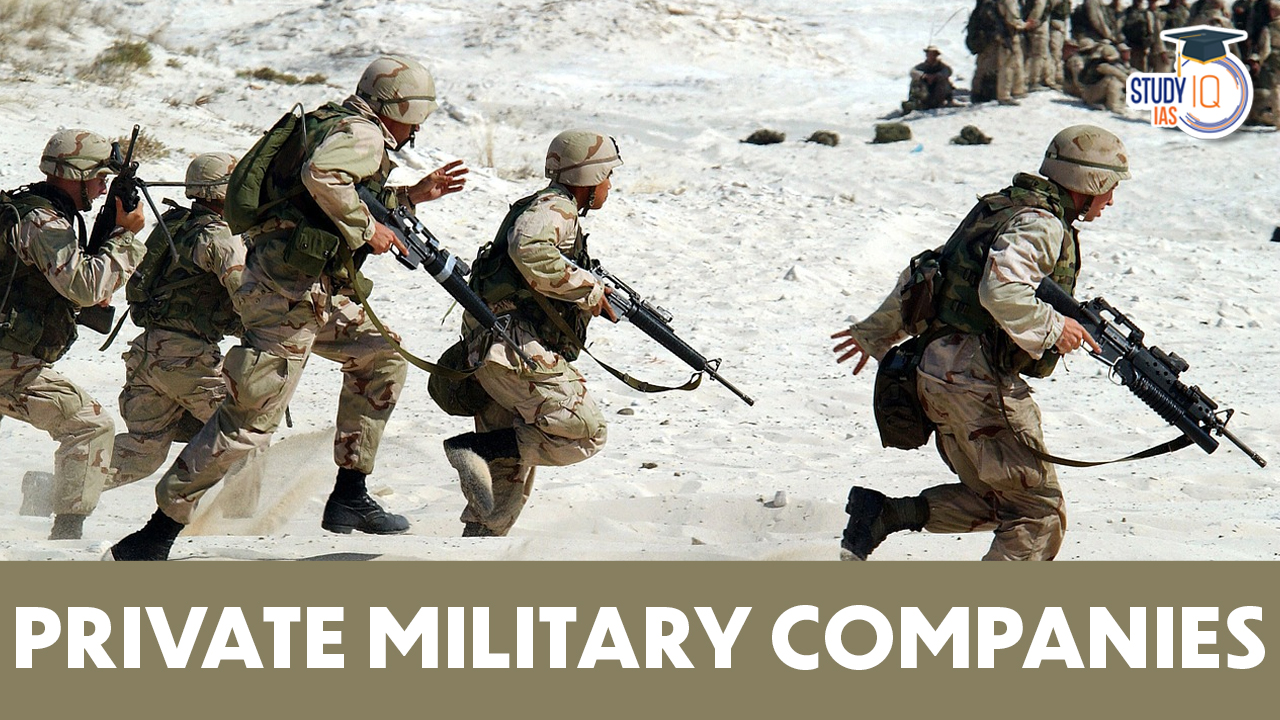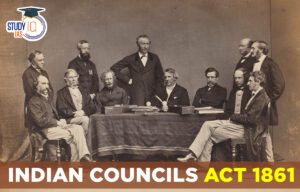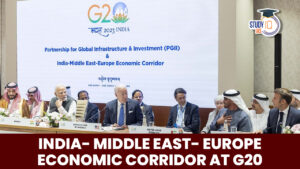Table of Contents
Private Military Companies (PMCs)
Private Military Companies are businesses that offer specialized services related to war and conflict, including combat operations, strategic planning, intelligence collection, operational and logistical support, training, procurement and maintenance.
They are distinguished by the following features likePMCs are registered businesses with corporate structures. PMCs provide their services, primarily for profit rather than for political reasons. PMCs vary enormously in size, ranging from small consulting firms to huge transnational corporations. Today more than 150 companies offer their services in over 50 countries.
Yevgeny Prigozhin Founder of Wagner Group
Yevgeny Prigozhin, head of the Wagner Group, attempted an uprising in Russia. He ordered his mercenary forces to march on Moscow from Rostov-on-Don. However, a peace deal was brokered by Belarusian President Aleksandr Lukashenko between Russian President Vladimir Putin and Prigozhin to prevent an armed conflict. As part of the peace deal, Prigozhin agreed to leave the country, and his troops were ordered to withdraw from Rostov-on-Don.
What is Wagner Group?
The Wagner Group, officially called PMC Wagner, is a Russian paramilitary organization that operates beyond the law in Russia. It is basically a private military company and a network of mercenaries. The group was first identified in 2014 while backing pro-Russian separatist forces in eastern Ukraine. It is said that the Wagner Group was involved in Russia’s capture of Bakhmut city which is situated in eastern Ukraine.
Western countries and UN experts have accused Wagner mercenaries of human rights abuses throughout Africa, including in Central African Republic, Libya, and Mali. The U.S. designated Wagner a transnational criminal organization in January, a month after finding that the group had an estimated 50,000 personnel inside Ukraine — around 10,000 contractors and 40,000 convicts from Russian prisons.
Examples of Private Military Companies Deployment
- Blackwater in Iraq: Blackwater (now known as Academi) gained significant attention for its role in Iraq. The company was contracted by the United States government to provide security services during the Iraq War in 2007.
- Executive Outcomes in Angola and Sierra Leone: Executive Outcomes, a South African PMC, operated in Angola in the 1990s during the civil war. They were hired by the Angolan government to combat rebel groups.
- Sandline International in Papua New Guinea: Sandline International, a British PMC, was involved in Papua New Guinea in the late 1990s. The company was contracted by the government to provide military assistance in the Bougainville conflict.
History of Private Military Companies (PMCs)
Modern PMCs trace their origins back to 1965 when Sir David Stirling founded WatchGuard International as a private company that could be contracted out for security and military purposes. The company’s first assignment was to go to Yemen to report on the state of the royalist forces when a cease-fire was declared.
In 1989
United Nations Mercenary Convention banned the use of mercenaries. However, the treaty’s definition of mercenary is obscure and few states have ratified it. Mercenaries are individuals who are primarily motivated by financial gain and are hired to participate in armed conflicts.
Dramatic growth in the number and size of PMCs occurred at the end of the Cold War. The exodus of over 6 million military personnel from Western militaries in the 1990s expanded the recruiting pool for PMCs. Since the late 2000s, PMCs have become increasingly involved in anti-piracy measures in Somalia and other regions. Later they were extended to aviation support too.
In 2008
International Committee of the Red Cross, the Swiss government, and contributors from private security companies and the civil society/NGO sector developed and proposed the Montreux Document on Private Military and Security Companies. The document details international legal obligations and lists specific recommendations related to PMCs and their hiring during armed conflicts. As of December 2018, 54 states had signed the Montreux Document.
PMC Wagner Group
The mercenary group, formally known as the PMC Wagner, came to light in 2014, amid Russia’s takeover of Crimea. Essentially a network of contractors, the organisation established a new headquarters in St. Petersburg in 2022 and registered as a company. Only 5,000 fighters made up the Wagner Group, which continued to operate mostly in Africa and West Asia while maintaining a high level of secrecy. But over the years, it grew to include “50,000 fighters” in Ukraine alone, according to a January statement from the UK Defence Ministry. According to reports, 80% of its soldiers in Ukraine were recruited from prison.
The Wagner Group attracted attention on a global scale for its suspected participation in a number of conflicts, including those in Syria and Ukraine, where it is believed to have provided military support and people. The organisation is well known for hiring and sending mercenaries, mostly ex-military men, to work in conflict areas for their customers.
It is important to note that the Russian government has not formally acknowledged PMC Wagner’s existence, and it is still unknown exactly how the two parties are connected. Additionally, Wagner’s activities and operations are frequently contentious and give rise to legal and ethical questions.
Yevgeny Prigozhin Wanger Group
Yevgeny Prigozhin, the owner and head of the Wagner Group, claimed he had taken control of Rostov-on-Don in an effort to overthrow the military leadership following months of escalating tensions between the two parties. Prigozhin has posted a series of recordings on social media, accusing the Russian military of attacking Wagner encampments and killing “a huge number of fighters.” He has also asserted that the Russian generals misled Putin about the justifications for the conflict with Ukraine.
Yevgeny Prigozhin Death
Wagner mercenary boss Yevgeny Prigozhin had been killed in a plane crash, alongside nine other people. Russia’s civil aviation body said the mercenary boss was on the manifest of the crashed jet, while Interfax report that 10 bodies were recovered from the crash site – which is around 185 miles (297.73 km) north of the capital Moscow.
Yevgeny Prigozhin Plane Crash
- A plane, which had been travelling from Moscow to St Petersburg, crashed near the village of Kuzhenkino;
- Prigozhin, alongside his right-hand man and eight others, were on board and were killed, according to Russia’s civil aviation authority;
- Wagner-linked Telegram channels proclaimed the mercenary boss to be dead;
- Interfax reported that 10 bodies had been recovered;
- Unnamed sources told Russian media they watched the plane get shot down by surface-to-air missiles, although this is unconfirmed;
- Shocking footage of the crash showed the plane spiralling completely out of control before crashing into the ground;
- There has been no word from the Russian ministry of defence or the Kremlin on the matter as of yet;
- Joe Biden said he would “not be surprised” if Prigozhin is confirmed dead;
- Tributes, including Wagner Group flags, have been laid at the crash site;
- An ex-MI6 officer claimed a contract was out for the life of Prigozhin.
Why is there a market for Private Military Companies?
- Lack of National Capacity: Some states may lack the necessary military capabilities or resources to address specific security challenges.
- Cost-Effectiveness: Hiring a PMC can sometimes be more cost-effective than building and maintaining a standing military force.
- Political Considerations: In certain situations, the use of PMCs may provide a more politically palatable option compared to deploying national troops or involving international organizations.
- Flexibility and Rapid Deployment: PMCs can offer flexibility and quick deployment, making them attractive for states and organizations that require immediate assistance or face time-sensitive security threats.
- Specialized Services: PMCs can provide specialized services that go beyond traditional military operations. This includes intelligence gathering, security consulting, training, logistics support, and other non-combat roles.
- Unconventional Needs: In some cases, individuals or groups may seek out PMCs for unconventional or illicit purposes, such as overthrowing governments or protecting illegal activities.
Are PMCs as effective as the Regular Military?
- Arguments for: Some analysts argue that PMCs offer operational advantages over regular military forces, such as being rapidly deployable; lessening public concerns about the use of force; and acting as a counterweight to the local military in states with weak political institutions.
- Arguments against: Most analysts hold that PMCs have a number of operational disadvantages relative to regular military forces: motivated by profit rather than duty, their commitment is in general considered to be more limited than that of regular military personnel; their employees are outside of the military chain of command; their contracts cannot cover every possible contingency in advance, thus reducing their combat flexibility and possibly compromising their ability to deal with the unexpected.
- Their non-combat personnel lack the cross-training that can augment military capacity in times of need; some analysts believe that pressure to cut costs in these companies can lead to decisions that risk the lives of their personnel — for instance, after four Blackwater contractors were killed in Iraq in 2004, allegations emerged that a fifth soldier to serve as a rear guard was kept from joining the group because of financial constraints; and when PMCs fail for any reason, it impairs the ability of regular soldiers to perform their duties.
Private Military Companies UPSC
There is a need for a comprehensive international treaty specifically dedicated to regulating PMCs. Scrutiny by the media and civil society watchdog groups has been one of the most effective ways to control PMC behaviour. This has made many PMCs more image conscious and less prone to committing flagrant violations, but the tendency is by no means universal.
There is a need for the development of voluntary codes of conduct and standards that PMCs can adhere to. For example, the International Code of Conduct for Private Security Service Providers (ICoC) was established in 2010. It sets out principles and standards for responsible private security operations and encourages companies to adopt and implement them voluntarily.
Some proposals suggest the implementation of licensing and registration systems for PMCs. This would involve requiring PMCs to obtain licenses, specifying the services they provide, and registering their personnel. Suggestions have been made to establish minimum standards for PMCs in areas such as recruitment and employment practices, training, use of force, respect for human rights and international humanitarian law, and corporate governance.


 Right To Information Act, Objective, Fea...
Right To Information Act, Objective, Fea...
 Indian Councils Act 1861, History, Provi...
Indian Councils Act 1861, History, Provi...
 India-Middle East-Europe Economic Corrid...
India-Middle East-Europe Economic Corrid...





















